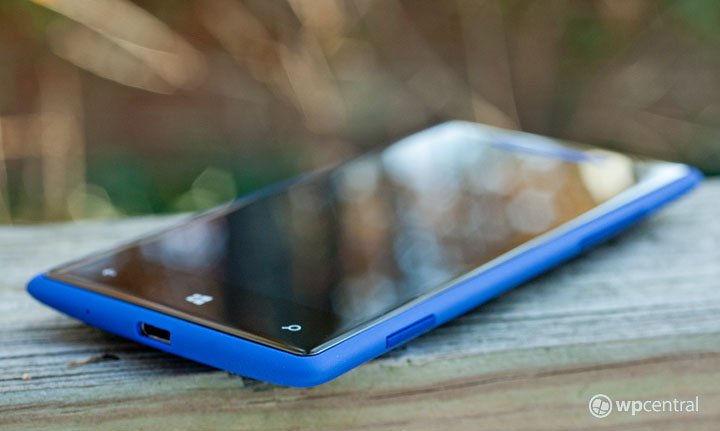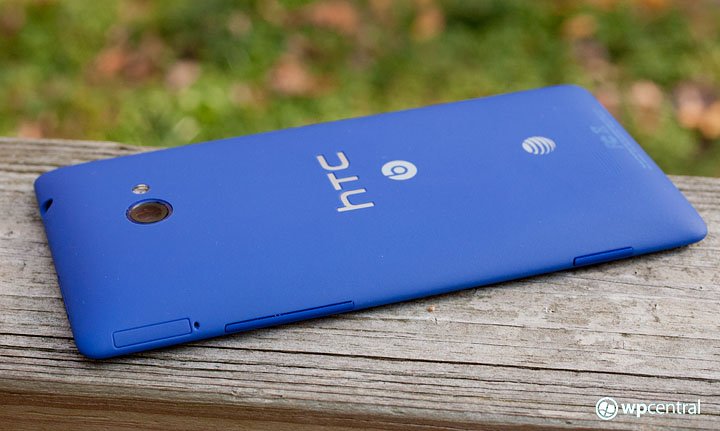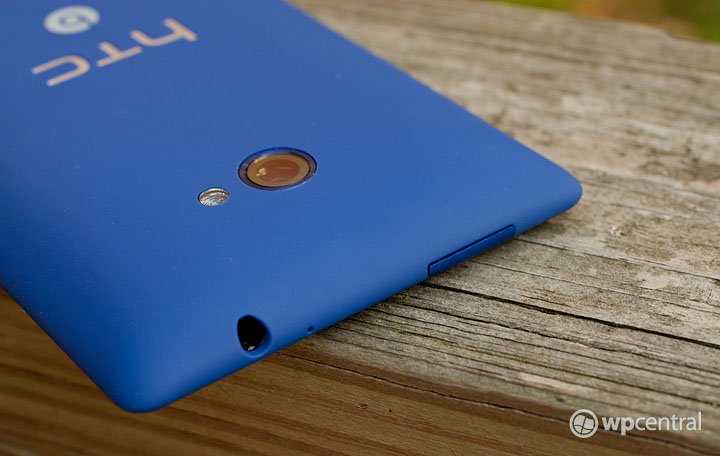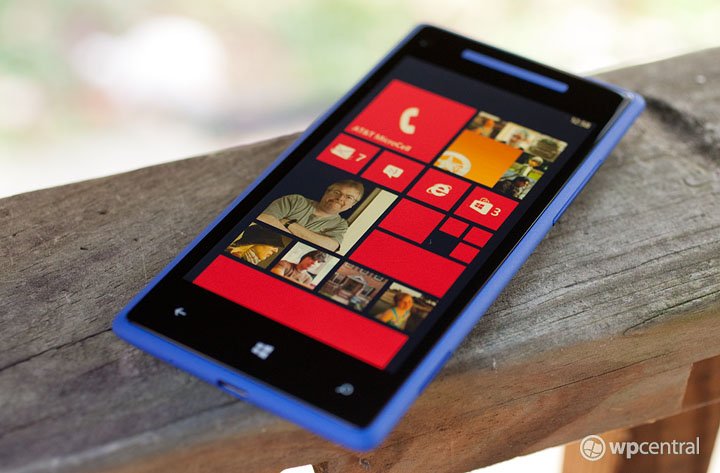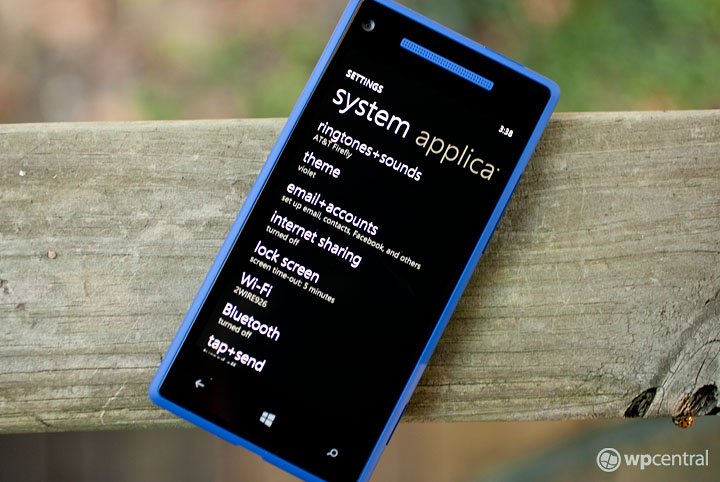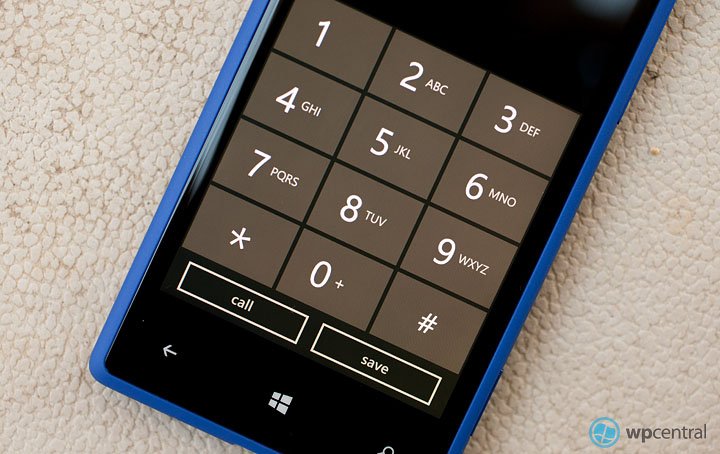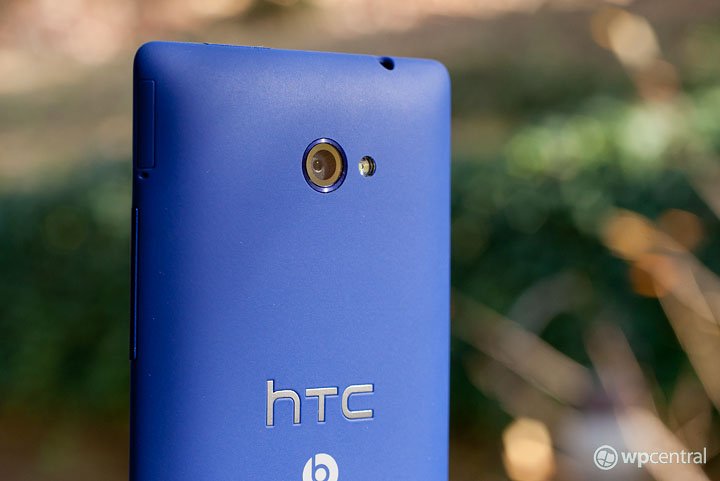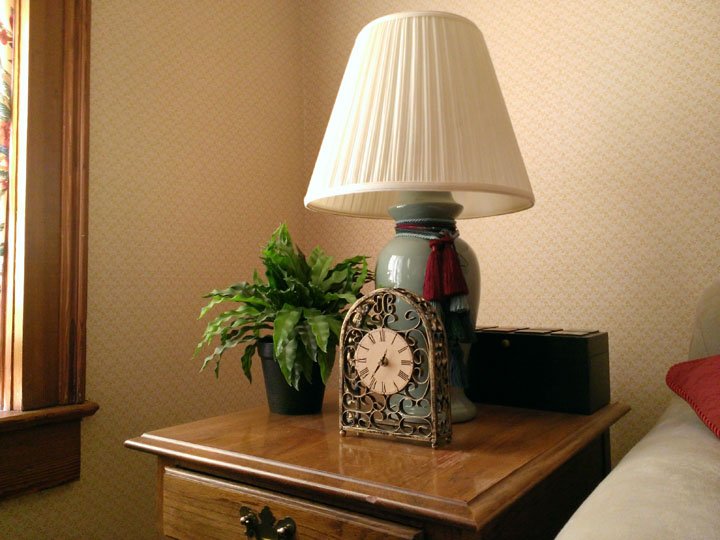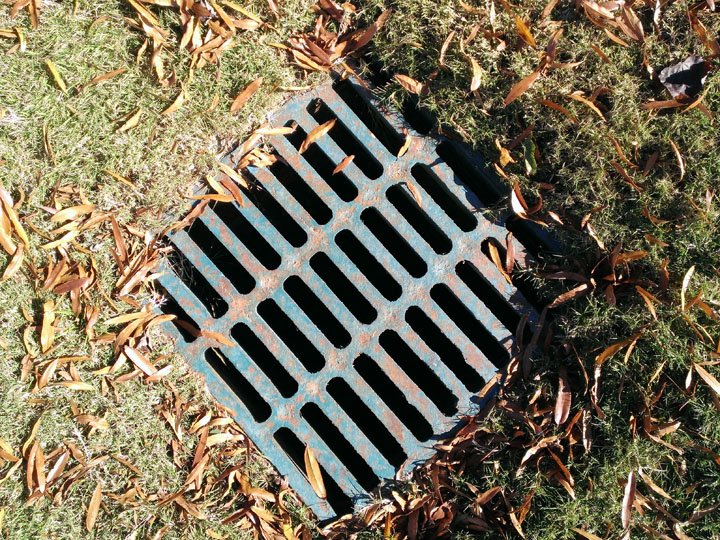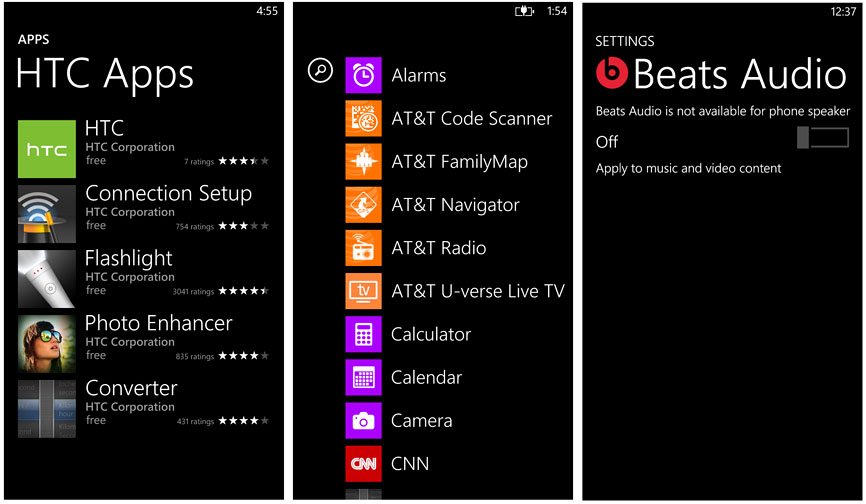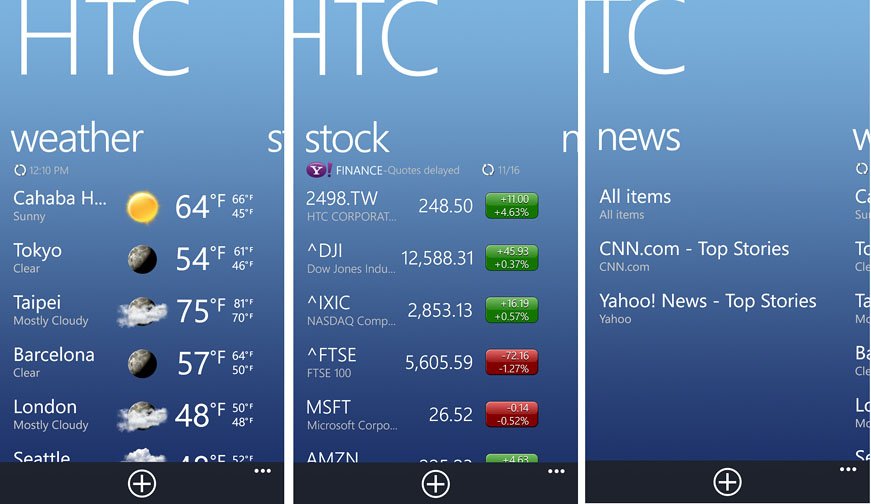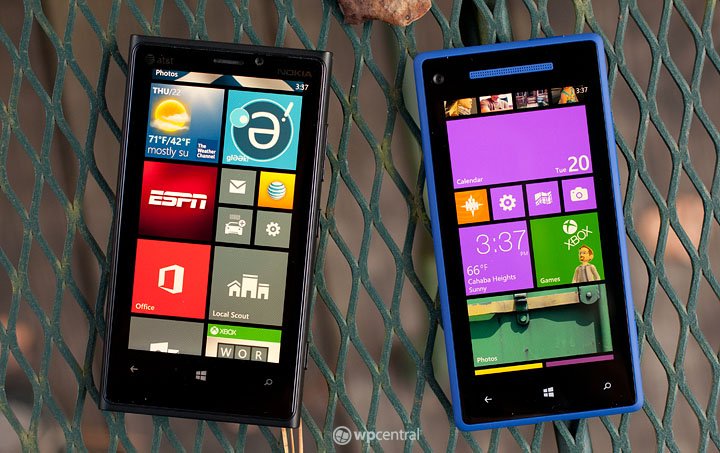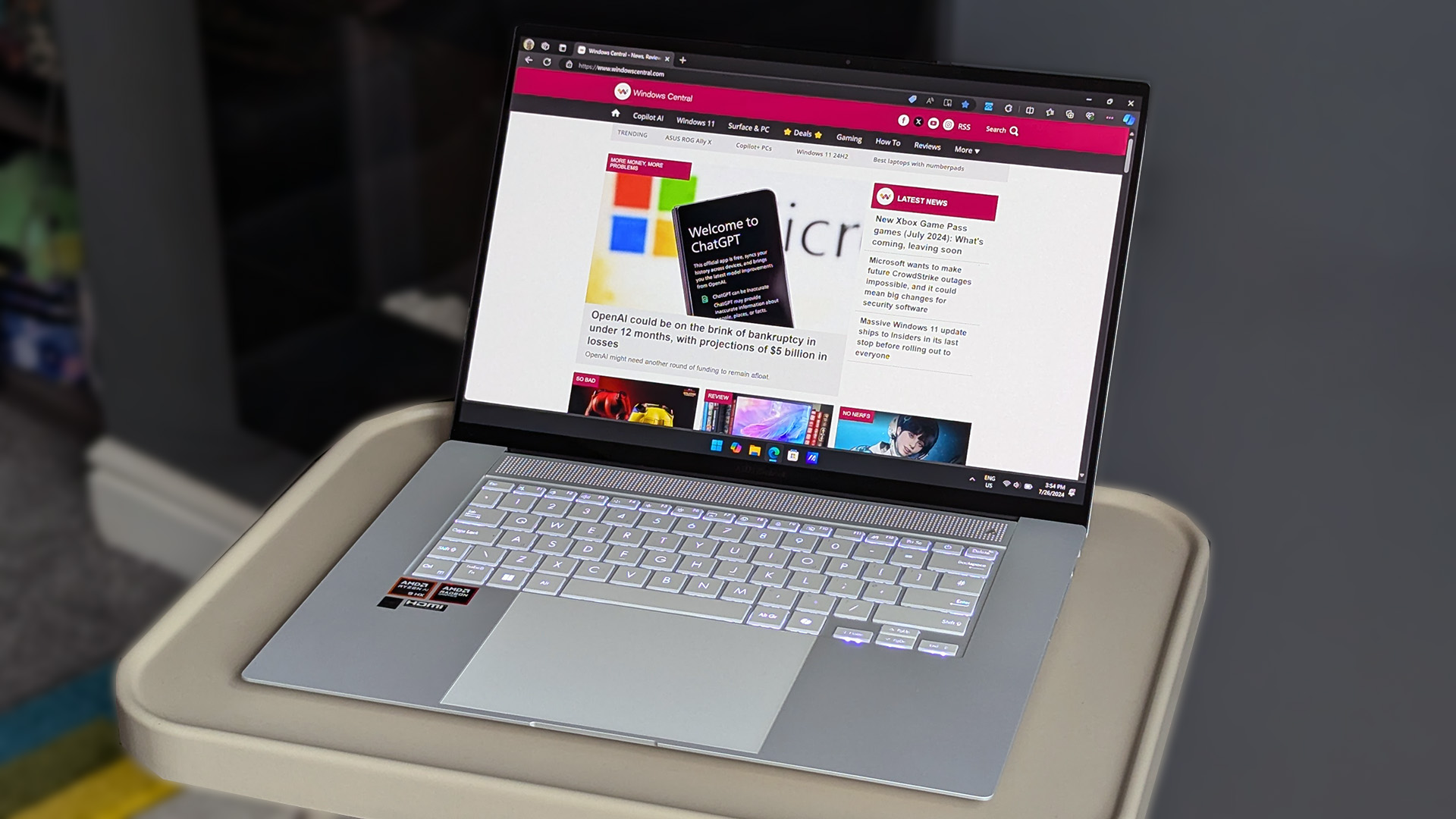HTC Windows Phone 8X Review

All the latest news, reviews, and guides for Windows and Xbox diehards.
You are now subscribed
Your newsletter sign-up was successful
Windows Phone Central's review of the HTC 8X - a powerful yet sleek Windows Phone 8 device
While the Windows Phone 8 launch spotlight has shined brightly on the Nokia Lumia 920, there's another Windows Phone that has been lurking in the shadows. The HTC 8X launched over at AT&T on the same day and is a respectable Windows Phone within its own right.
The 8X is fitted with a 4.3" Super LCD screen, NFC (Near Field Communication), BEATS Audio, and an 8MP camera with BSI sensor (helps with low-light performance. The 8X is noticeably narrower than the Lumia 920 and reminds me of how the Samsung Focus Flash compared to the Focus S.
If you prefer a more compact Windows Phone, the HTC 8X isn't a bad choice.
The weight, slim profile, Super LCD screen, BEATS Audio, NFC Support, healthy battery life, respectable camera with BSI sensor. | Random resets, new aspect ratio that isn't ideal for older apps/games, battery drain present with some devices, capacitive buttons can be overly sensitive, and occasional lag with the front facing camera. |
While there's room for improvement with the 8X, HTC has produced a nice Windows Phone to add to a long line of quality Windows Phone devices. The slender, light weight design feels comfortable in the hand and well suited for pocket carry. The camera captures quality images and video and as far as a phone goes, call quality was loud and clear. If the larger Windows Phones aren't your cup of tea, the HTC 8X may be right up your alley. |
Video Overview of the HTC 8X
The Body
The HTC 8X measures 5.21 x 2.61 x .39 inches and weighs in at 4.6 ounces. The 8X has a unibody design that essentially means you won't be able to remove the 1800mah battery.
The 8X comes in two varieties at AT&T. You have the 8GB version that is currently being offered in California Blue or Limelight. You also have a 16GB version that is currently available in California Blue.
The 8X's design has the volume rocker and camera button along the right side. Up top is the power button and 3.5mm headphone jack. On the left side is the micro-SIM card slot and at the bottom of the 8X is the micro-USB port.
The buttons on the 8X are really flush with the body, raising up just enough to be distinguishable. This gives the 8X a sleek feel to it but some may find the buttons hard to manipulate.
All the latest news, reviews, and guides for Windows and Xbox diehards.
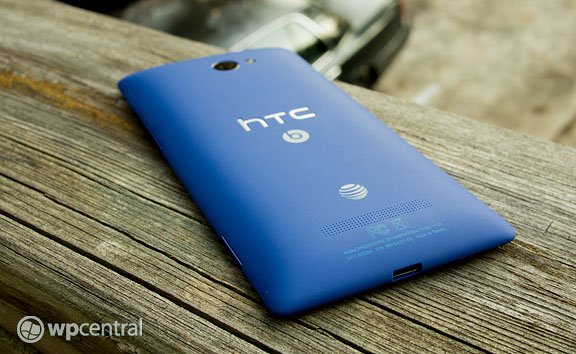
Speaking of sleek, the HTC 8X's back side and sides are curves to give the Windows Phone a comfortable feel to it. The matte finish is smooth but not slick and looks nice. The finish looks really good on the 8X but we've heard rumblings from others that the paint has begun to chip on the 8X. We haven't experienced such and with the 8X being as thin and light weight, it should handle a skin case nicely.
On the face of the 8X you'll find the customary capacitive back, start and search buttons. They are backlit when the 8X is in use and are very receptive to the touch. However, the search and back buttons may be too responsive. In just barely touching the sides of the 8X's face would activate the search feature. If you grip the 8X and your fingers barely wrap around the bottom of the 8X, you'll activate these buttons.
Another nice feature on the face of the 8X is the LED indicator. The indicator light is a nice touch by HTC and on the 8X it rests in the right corner of the ear speaker. It acts as a charging indicator (red for charging, green for fully charged) but doesn't flash on missed calls.
Overall, the 8X is designed well. It may not feel as solid as the Titan or Titan II but with the smaller screen, HTC is able to offer a more slimmed down, sleek looking Windows Phone.
The Display
The 4.3" Super LCD screen is protected by Gorilla Glass II giving the 8X a solid level of durability. Image quality on the 8X's Super LCD 2 screen is really nice. Colors are vibrant with just the right amount of contrast.
Outdoor performance was decent, along the same lines as other Windows Phones. The more direct and brighter the light, the harder it is to view the screen.
The screen's touch responsiveness is on par with other Windows Phones. The only nit we could find is that with the narrower screen, you lose a bit of elbow room for typing. It's the price you pay for the more compact 8X. If you do a lot of typing on your Windows Phone, you may want to take test out the keyboard before signing on the dotted line.
The 8X's screen has an aspect ratio of 16:9 which is something new. It allows the 8X to make the most of the 1280x720 screen. The downside to all of this is that with older Windows Phone 7 apps and games you get a small black bar at the top of the screen to make up for the difference in the older app's aspect ratio and the 8X's. As more apps transition to Windows Phone 8, this issue should take care of itself.
The bottom line, as far as the HTC 8X's screen is concerned, it's hard to find much to complain about. It's sharp, has great viewing angles and color representation is accurate.
Hardware
Under the hood the HTC 8X offers you Bluetooth 3.1 (+EDR), GPS, WiFi, NFC and can be updated over the air. All fairly standard with Windows Phones these days.
HTC partnered with BEATS Audio about a year ago and offered the new audio technology on a handful of Android devices. BEATS Audio (think of a hip hop version of Dolby) can be turned on/off in the 8X's settings and is only available through headphones. BEATS is an acquired taste and is probably best suited for matching headphones. With regular headsets, I found it to be basically a bass booster. In addition, the 8X has a pre-amp out for the speaker--one of the first of its kind in a smartphone. As a result, the 8X easily produces some of the best audio we've heard for a Windows Phone. It's loud but never distorts, which is an impressive feat.
The 8X is driven by a 1.5Ghz Qualcomm dual core processor and is powered by a 1800mah battery. Both the 8GB and 16GB versions are fitted with 1GB of RAM.
Battery life with moderate to heavy use is on par with other Windows Phones lasting throughout the day. We should note that some have experienced shorter than normal battery life (4-6 hours) when the NFC is enabled. We aren't sure if there is a direct relationship between crummy battery life and NFC but with NFC disabled, battery life improved dramatically.
HTC 8X, the phone
As capable as our Windows Phones have become, it's easy to lose sight that these devices are also phones. In that regard, the 8X performs well with call quality. Volume was ample with the ear speaker and back speakerphone. Voice equally was excellent with no complaints from those on the other end.
The phone aspect of the 8X is on par with any other Windows Phone out there. The vibrating alert is still on the weak side but then again, I haven't seen a solid vibrating alert since the days of the HTC Tilt days.
The Camera
The HTC 8X has an ultra-wide angle front facing 2.1MP camera and a 8MP rear facing camera with a 28mm f2.0 lens. The rear camera utilizes a backlit sensor (BSI) that pulls in more light than the more traditional front lit sensor. Combined with the brighter f2.0 lens, the BSI sensor makes the 8X an excellent indoor or low light camera. The 8X lacks any image stabilization so it won't pierce the shadows the way the Lumia 920 will but the 8X's camera isn't a push over either.
The front facing camera, while jittery compared to the Lumia 920, produces very good image quality ideal for Skype users or those who like to do group shots with friends. That's due to its high end hardware: 2.1MP with an F/2.0 lens and a whopping 88 degree viewing angle. That means compared to every other smartphone out there, you see more with this camera. It also prevents you from being "too close" during a Skype call.
We should note that the HTC 8X has a dedicated imaging chip. In a nutshell this means the 8X processes images a little faster and the camera won't bog down the main processor. Much like a dedicated graphics processor helps take the load off a computer's processor. It's a decent feature and does give the 8X a teeny bit of speed when compared to Windows Phones without the dedicated chip but doesn't leave them in the dust.
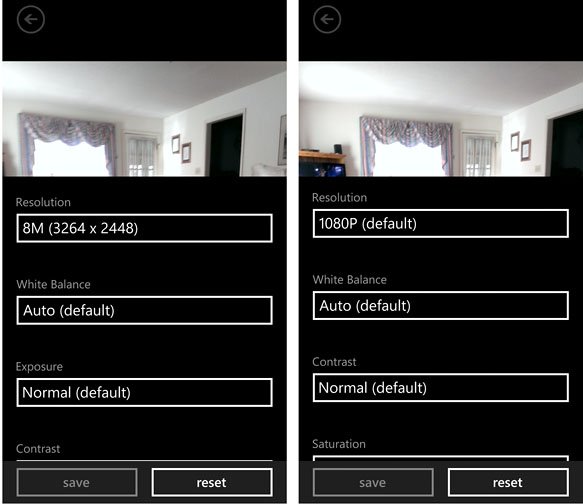
As far as menu controls are concerned, the 8X gives you a healthy settings menu to allow you to tweak the camera's performance as needed.
The 8X gives you control over effects filters (gray scale, negative, sepia, solarize), resolution (VGA to 8MP), white balance, exposure compensation, contracts, saturation, sharpness, ISO and face detection (on/off). It's a nice selection of controls and if you don't like messing with a cameras settings, each has an "auto" setting. Sadly, there isn't a panorama or burst setting on the 8X.
HTC 8X Outdoor Photo Sample (6MP)
HTC 8X Indoor Photo Sample (8MP)
Image quality is solid with slight over exposure noted on those bright sunny days. I would have liked to have seen better color saturation and temperature with the 8X but it's nothing that can't be corrected with post-processing/editing software. Low light pictures came out well but with the lack of any stabilization, you can see softness due to motion blur.
HTC 8X Night Photo Sample (6MP)
HTC 8X Outdoor Photo Sample (8MP)
Video quality is good, maybe a touch better than what we've seen from HTC in the past. The 8X can capture video from 1080p to QVGA. We did note a little lag at times when using the front facing camera. Nothing to pull your hair out over but worth noting. While it was a blustery day when the sample video was shot but the microphone seemed to struggle a little.
Overall, the 8X has a respectable camera. We've got a closer look at the camera coming up tomorrow but for now, if you opt for the 8X as your Windows Phone of choice you'll be pleased with the camera's performance. I just wish HTC hadn't gotten rid of the panorama and burst modes.
The Software
Asides from all the Windows Phone 8 goodness, the HTC really has a limited amount of bloatware. What is present can be useful and if you feel otherwise, it all can be uninstalled.
The 8X has the obligatory AT&T software that includes Family Map, Radio, Navigator, and such. Along with the AT&T software, you will also find the HTC Hub installed (weather, news, stock pages) as well as a flashlight app, a converter app and HTC's Photo Enhancer.
We'll go ahead and approach the elephant in the room as far as exclusive software is concerned. While HTC's app store is nice it pales in comparison to the Nokia Collection which continues to grow. Understanding that it's still early, we had hoped to see HTC take more of an aggressive position in supporting their Windows Phones. We can only hope that things pick up or the 8X might go the way of the Titan II...a great Windows Phone that had promise but was quickly overlooked.
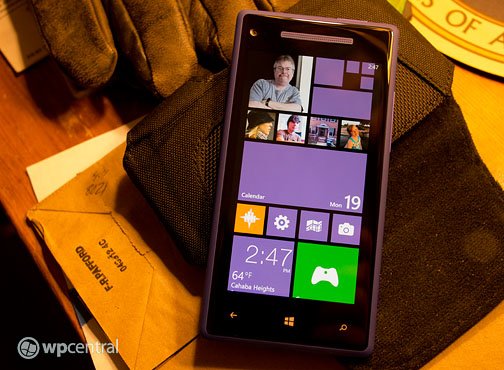
Wrapping it up
The HTC 8X is somewhat of a dramatic departure from the HTC Windows Phones of the past. From the slimmer body to the splash of color, the departure brings HTC in line with competitors who are offering not only the black, conservative look but also options for the not-so-conservative. In a nutshell, the 8X is a comfortable, light weight, slimmer option for those not wanting a titan of a Windows Phone.
There's little to complain about with regards to the 8X's build and design. The capacitive buttons on the face of the 8X can be a little sensitive and the flush buttons may be touch for large hands to manipulate but neither are truly deal breakers.
As far as performance goes, the 8X moves along nicely but we did find two oddities. First, the battery does seem to spring a leak when NFC is enabled. Second, some are experiencing random resets. While I haven't seen such yet on my 8X, Daniel Rubino and Rich Edmonds have sat and watched their 8X's restart spontaneously. We even have a WPCentral Forums discussion on this mystery. (A loose SIM door may be the culprit for some).
Not sure if this is a deal breaker with the 8X but HTC needs to jump on these things and figure out why their flagship Windows Phone has a mind of its own at times.
We are a little concerned about the lack of HTC apps available for the 8X. Sure, it would be great to see HTC step up and throw some support behind their Windows Phone but even the lack of HTC apps isn't a deal breaker with what all you can find in the Windows Phone Store.
The 8X has a solid perform of a camera and call quality was excellent. BEATS Audio may not be everyone's cup of tea but it does give Metallica and AC/DC a bit more gusto.
The Nokia Lumia 920 Comparison (short version)
All in all, the HTC 8X is an enjoyable Windows Phone. Better than the Nokia Lumia 920? That's really a subjective question. I think the 920 has the better camera and a more solid build quality. However, with the solid build quality comes a slightly larger and heavier package. By no means is the Lumia 920 overweight and cumbersome but the HTC 8X is slimmer and lighter.
Feature wise, the wireless charging on the Lumia 920 will spoil you and I like the extra elbow room the larger screen offers. You also have the intangibles to consider with manufacturer support. We've seen Nokia support the Lumia line of Windows Phone commendably and hopefully HTC will follow suit and make this a non-issue. The bottom line is that I don't think you can go wrong with either Windows Phone. It's just deciding which meets your personal tastes and needs the best.
All told, the HTC 8X is an excellent Windows Phone that will appeal to many. HTC really needs to address the random resets and battery issues though. Should you be in the market for a slim, light weight Windows Phone, the 8X is worth considering.
Related

George is a former Reviews Editor at Windows Central, concentrating on Windows 10 PC and Mobile apps. He's been a supporter of the platform since the days of Windows CE and uses his current Windows 10 Mobile phone daily to keep up with life and enjoy a game during downtime.
